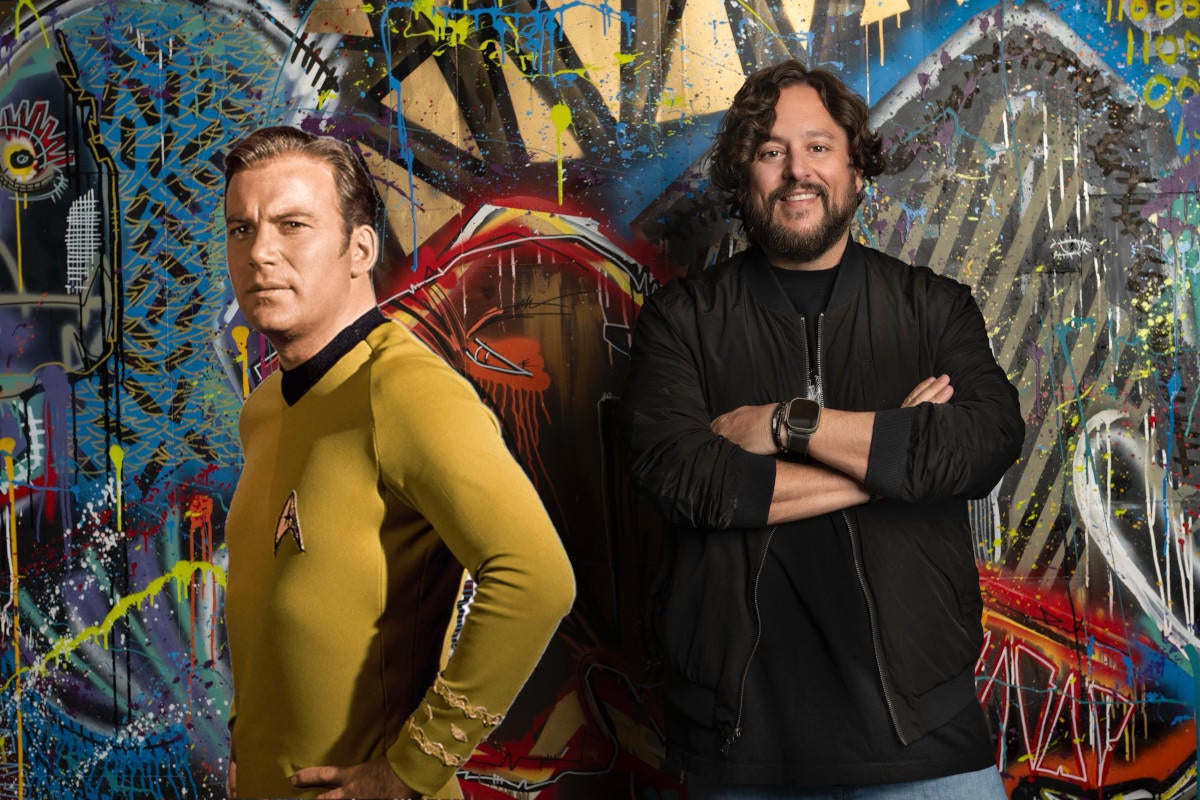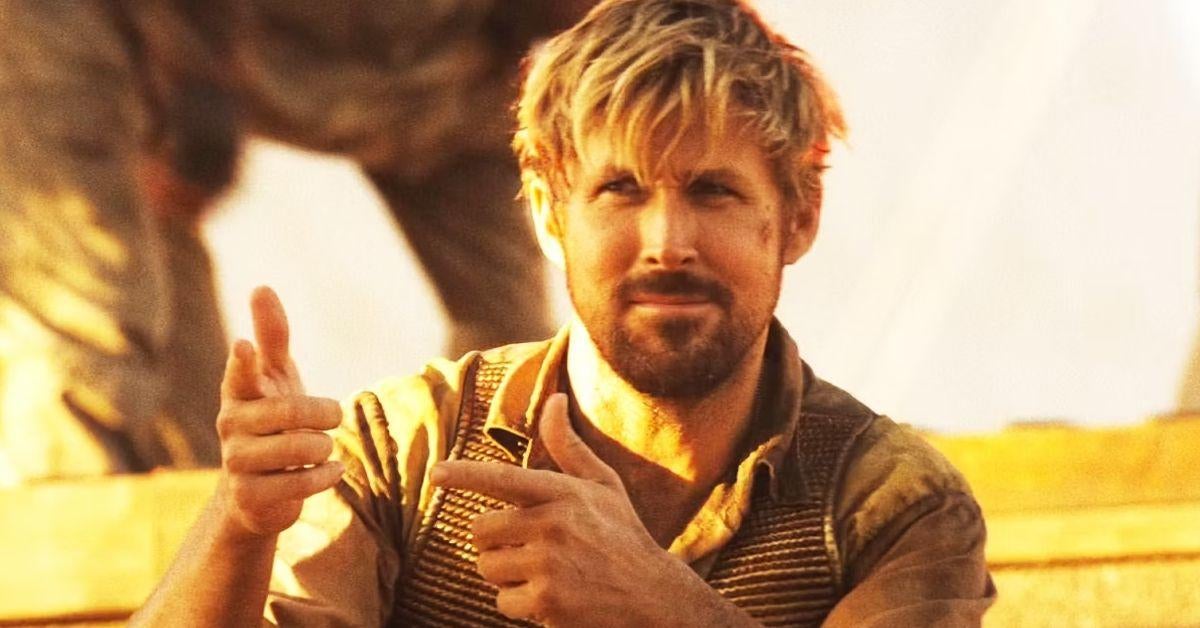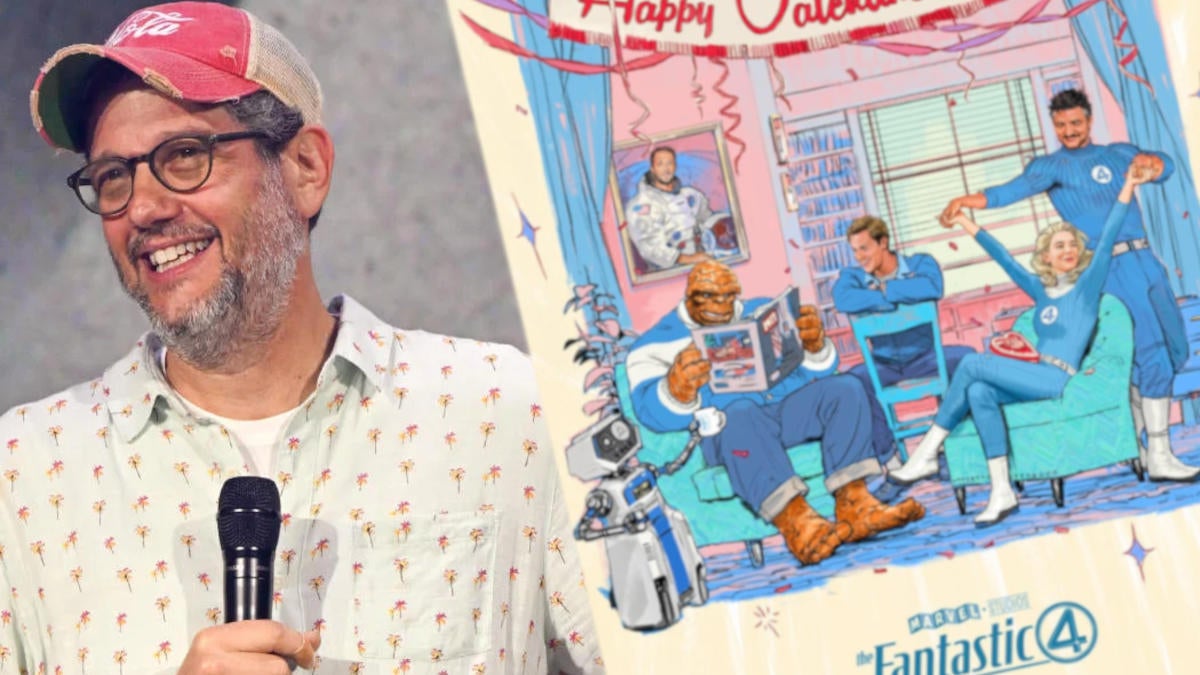Colossal, a biotechnology firm who hopes their efforts will one day de-extinct a number of species, recently made some waves on social media with a tongue-in-cheek petition to Star Trek’s United Federation of Planets. Between that, and the inevitable comparisons to Jurassic Park, there’s some low-hanging fruit when it comes to pop culture jokes. Of course, co-founder Ben Lamm is not the kind of guy to take those jokes personally. He’s more the kind of guy who has a Barbasol can on a shelf in his office, fully leaning into the Jurassic Park of it all.
A self-identified nerd, the entrepreneur told us that he views a stunt like the Star Trek petition less about generating publicity for the company (although it obviously does that) and more about educating everyday people about what the possibilities are in his cutting-edge industry. Of course, when the public mostly sees your business through the lens of Jurassic Park, it can’t hurt to let them know there are non-catastrophic possibilities, too.

“I’m a huge comic book guy. I’m a huge sci fi guy,” Lamm told ComicBook. “And so, I have been accused of making sci fi based companies. Like my last company was going to be called hyper giant, which was the satellite software is an AI based satellite software and defense company before AI and defense got cool. People called it Stark Industries. Then, we started Colossal, and it shouldn’t surprise you that we get the Jurassic Park reference once or twice.”
“We love pop culture at Colossal, and we have embraced the fact that parts of what we are doing can be seen as homages to movies like Jurassic Park,” Lamm added. “There have been articles on [pop culture sites] talking about CRISPR and all this stuff, and one of the big things that we feel very strongly about at Colossal is, while we are bringing back these extinct species, leveraging CRISPR and some of these genetic engineering technologies, educating the general public on the power of genetic engineering is awesome. Until recently, genetic engineering was something that was only in sci-fi, right? You’ve got the Jurassic Park world of taking dino DNA and engineering frog-dinosaur hybrids. And then you’ve got things like in, in Star Trek, where the rise of super-humans led to the Eugenics War and the banning of most genetic engineering on mammals, including humans. We were like, ‘You know, this is an opportunity to bridge science — real, hardcore science like CRISPR and genome engineering — with this audience [of Star Trek fans].”
In part, Lamm said it’s worthwhile talking about the fantastical elements of genetic engineering because in both fiction and in the real world, some of the biggest stories are about people who are using the science unethically. That means they dominate the conversation, and some of the practical and potentially world-changing applications of the work can be overlooked.
“You’re starting to see therapeutic applications roll out with some of these technologies,” Lamm explained. “So you have that negative association, but then you’ve got companies like Colossal that are making mammoths and dodos, and another yet to be announced species. A lot of the technologies that we develop at Colossal have an application to conservation, and we just give those to the world for free. So, while we’re working on bringing back wooly mammoths, we’re also working to use those same technologies to save the northern white rhino.”
“We have a huge conservation arm, and so we thought, ‘oh, this is an awesome opportunity to say there is this dystopian path of genetically modified super soldiers like Khan,” Lamm said, explaining the decision to make noise on the Star Trek subreddit. “There should be containment around certain uses of these technologies, for sure, but to ban genome engineering in mammals completely is just too broad of a stance that that this fictional universe took, and it is a slippery slope. We basically said, it should be able to be used for genetic engineering on animals and ecosystem restoration, and it kind of went viral. People got really excited about it, and people actually said, ‘well, in the Canon and episode XYZ, they, there are genetically modified plants on this planet that they’ve allowed.’ We started getting into the nuances of it, and it was amazing how we could engage through the lens of this fictional universe with ideas that can apply to us in our world. We liked that we could use it as an opportunity to educate this really smart, really passionate community that these technologies are here, and we can use them for conservation.”
Lamm noted that in Star Trek IV: The Voyage Home, the crew of the Enterprise have to go back in time and bring a humpback whale to the future, because they’re extinct in the future.
“My argument is, they wouldn’t have had to go back in time, if they could de-extinct humpback whale, leveraging genetically engineering. It could have actually helped save them before them having to go all the way back in time.”
The more ambitious and fantastical ambitions of Colossal might make the whole company feel like a stunt. After all, Lamm is the first to acknowledge that he’s a pop culture fan who made his fortune selling software to companies like Zynga. But after all his talk about the United Federation of Planets and John Hammond, he had a serious message to end our conversation with — one that takes that kind of criticism into account.
“I hope that investors, and people around the world, can look at this and say, ‘We want to support moonshots.’ Look, do we need an incrementally better Amazon? Do we need an iPhone that is just that much better? I come from software, so I think about this a lot, but we get into these iterative cycles, where you release the 1.0 and the 2.0 and the 3.0. Do we want that, or do we need these big, crazy moon shots that like push the human condition forward? I really believe that. The movie Jurassic Park inspires people to feel dread, but it also shows some people, ‘If I go become a geneticist, I could do something like this.'”
Lamm says that’s what they’re going for with the de-extinction program, and that whether it’s the first or third or sixth animal brought back, “I think that that halo effect will have a bigger ripple effect than even the de-extinction of any one animal, right? The inspiration halo effect will, you know, I think be really powerful.”
That halo effect is why he believes it isn’t a waste of time not only to pursue larger-than-life projects, but to make these public and sometimes fanciful connections to popular culture and science fiction.
“Some people have said, ‘Well, you could just go do X or you could do a Y, or why don’t you give that money to conservation?'” Lamm explained. “The reality is, one of the mandates that we have is that all the technologies that we develop on the path to de-extinction, that have an application to conservation, we just give to the world for free. So there was a big announcement a week or two ago around a virus called E.H.V. It kills about 30 or 20 percent of elephant baby elephants every year — more than poaching, more than anything. Some of our technology, and some of our capital, is going to help solve that. That’s a big announcement, that’s a benefit to the world, and that’s a byproduct of pursuing the mammoth. We hope that there’s a bunch of these little byproducts that make a meaningful impact.”







